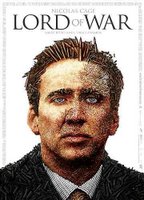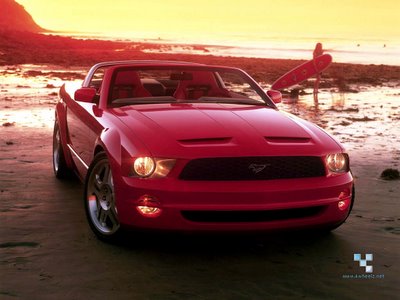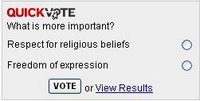
Based on actual events, this black comedy/drama stars Nicholas Cage as international arms smuggler Uri Orlov. The story follows Uri from his humble beginnings as a Soviet immigrant in 1970s Brooklyn and peaks with his involvement in selling off the stockpiled arsenal of post-Cold War Ukraine to--among other top clients--the sadistic African dictator André Baptiste, Sr. (Eamonn Walker). Jared Leto costars as Uri’s little brother Vitaly, whose conscience and a burgeoning cocaine problem get in the way of business. Ethan Hawke is good as a sanctimonious Interpol agent with a vendetta against Uri, but the film's biggest dose of onscreen gravitas comes from Walker, whose Baptiste seethes with a heavy, serpent-like malevolence.
Written and directed by Andrew Niccol, the film makes fine use of the brisk stream-of-consciousness narration style that Martin Scorcese brought to the true crime genre with GOODFELLAS (1992), and a near constant flow of action and classic rock songs that ensure a speedy, riveting ride through three decades of global carnage. Cage, who coproduced, lets his patented oddball magnetism slowly change polarity, until viewers realize they’ve been led into a moral quagmire by falling for his self-delusory spiels about supply and demand, making this one of the bravest and most jet-black comedies of its decade.
The film encapsulates the life of illegal global firearms (including soviet choppers and tanks) dealing by Uri Orlov (Cage), his exploitation of legal loopholes, and the aspects of the illegal trade even to a political level. It does so perfectly right from the introduction as you follow the life of a...bullet in first-person view, from copper plates in the factory of ambiguous nation, into the crate, into the Soviet Union, into an unsettled African nation, into the magazine of an AK-47 assault rifle, into the barrel chamber, and eventually flying into the head of an "militant" African kid with a sadistic splat sound and quickly followed by blackout to end the prelude to the film.
Uri forms the most unusual of friendships with some of the most dangerous dictators in the world, going by a first-name basis even. But the best quote or moment with a client has got to be between Uri and the Liberian dictator, Andre Baptiste, and his take on American culture.
[Uri is sat across the dictator's desk, surrounded by guards, giving the usual salesman pitch while Andre casually opens and inspects the silver-plated Magnum. He notices one of his young guards busily flirting with a girl nearby. He fumbles with the Magnum a bit more before loading a bullet, aims and shoots the young guard dead.]
Uri: "Why did you do that?!?"
Dictator [aims at Uri]: "What did you say?"
Uri [short pause]: "Now you're going to have to buy it. It's a used gun. How can I sell a used gun?"
[snatches gun from Dictator and begins cleaning it]
Dictator: "Ha...a used gun. A used gun! That's a good one." [laughs more as tension in the room dies.]
"You know, there is no dicipline with the youth today. I try to set an example (looks at dead guard being dragged away), but it is difficult eh? Personally I blame MTV."

The all-new Ford Mustang: Some women say it's better than having sex and chocolate at the same time.
Sometimes I wonder if....
i) Ozzy writes his own lyrics;
ii) Ozzy is capable of writing his own lyrics;
iii) is that really Ozzy singing his own lyrics.
in no particular order.
Causing offence should not be confused with incitement. To this some will argue that surely we should be aware that those who take offence will respond in very agitated ways. If the agitation is foreseeable, then it is incitement. This is a very poor argument. It makes the definition of incitement entirely dependent on how violent the other party can work himself up to be. The more violent his response, they more he is likely to get his way and the freedom of the speaker curbed. In the final analysis, such a position effectively rewards violence. Hardly a good way to build a peaceful society.
This is related to the problem with the phrase, "expressing an opinion responsibly". It seems to suggest that if free expression causes offence and possible backlash then that freedom must be curtailed in the name of "responsibility". This woolly-headedness was exactly what the Danish newspaper wanted to contest. What is the meaning of freedom, if that freedom cannot in practical terms be exercised due to various forms of censorship? What is the use of a title deed to a piece of land if you are never allowed to take possession of it?
Thirdly, the Straits Times said that the Danish newspaper was doing "violence to the concept" of free speech. One can easily argue that imposing broad burdens of responsibility and non-incitement does even greater violence of the concept. Fourthly, the Straits Times felt that the governments should act against the newspaper for being "downright dangerous to the national interest". Jyllands-Posten -- and it appears from opinion polls, 75% of Danes supporting them -- could have felt that making a stand to defend the cherished principle of free speech was very much in the national interest. Is it typically Singaporean that we only define "national interest" in economic and trade terms?
Christians and Jews I'm sure have been the subject of many office jokes and caricatures. And I certainly don't think Matt Stone and Trey Parker made any exceptions for their provocative cartoon South Park. So why, considering Christians and Jews are probably the largest religions in America, wasn't there an uproar against that cartoon? A cartoon that was 9 seasons or 225 episodes more successful than the Danish caricatures at provoking people, not able to cause at least one embassy or one flag to burn?
On the TV news Tuesday night, 31 January, Channel News Asia reported that the Saudi government called on European governments "to protect religions." Why should religion be privileged? Why should the beliefs of some curtail the freedoms of others, especially non-believers? Who decides what constitutes a religion and what does not, such that one set of beliefs is privileged and another set is not? What if a Christian sect said the use of the cross for non-Christian purposes caused serious offence to them, and demanded that the entire world stopped using the "+" sign for addition? Are we supposed to comply? It is one thing for a person to live by his beliefs, e.g. a vegetarian who chooses to forgo meat or a member of the clergy that takes a vow of celibacy. We have to respect that person's choice. It's another thing for someone, or an organised mob, to insist that others too must abide by his/their rules. It's even worse when people with a set of beliefs call upon governments to use governmental power to impose those rules upon everybody else.
The Danish Prime Minister was right to stand his ground.
Was it all necessary? you might ask. Couldn't the children's book that started everything have been published without drawings of the Prophet? Perhaps, but it's not my book or yours, and thus, it's not my decision or yours to make whether Kare Bluitgen should have done without. (Personally, I am quite mystified why he didn't think such illustrations would reduce the sales of his book, especially to Muslim
families.... but then, it's his book) Couldn't Jyllen-Posten, the Danish newspaper, have written about Bluitgen's difficulties without commissioning the 12 cartoons, and still made its point just as effectively?
Again, perhaps it could. But at what point do we stop complaining about the erosion of freedom, and actually seize it to prove a point? Do we choose paralysis or action to defend our freedom? Perhaps, as Ayaan Hirsi Ali, the Somali-born member of theDutch Parliament said, it is necessary.
The protest demonstrations in the Middle East, and by Muslim communities in Europe too, only prove the point that believers in free and secular societies need to be alert to creeping censorship from religious extremists, the very point that Jyllands-Posten set out to highlight. What are the demonstrators calling for? They are calling for censorship. Not because they have been injured in any measurable way, though some may argue that such cartoons reinforce the prejudices against Muslims that is manifested in other, concrete ways. To that, the reply was given by none other than a Muslim editor in Amman, Jordan. Jihad Momani wrote in his newspaper Shihan, "What brings more prejudice against Islam, these caricatures or pictures of a hostage-taker slashing the throat of his victim in front of the cameras or a suicide bomber who blows himself up during a wedding ceremony in Amman?" (However, he was also reckless enough to reprint 3 of the cartoons. In Jordan! He was sacked before the day was over, and arrested the following day, accused of insulting religion under Jordan's press and publications law. Whether it was because of his words, or his decision to print the cartoons, is not clear. Source: BBC)
Yet this only reminds us of the very reason why the West is leagues ahead in cultural vibrancy and creativity. The freedom to challenge, which necessarily causes offence to some who embrace the status quo, is fundamental to intellectual, economic and socio-political progress. Calling pet ideas into question is essential if we are to use human intelligence in any meaningful way. Of course, Muslim groups are free not to purchase any goods from the Nordic countries and make their displeasure known; and they are free to hold as many protest demonstrations as they wish. But without a better intellectual foundation, the uproar only shows it up for what it is: bullying.
The calling for compromise in western values of free expression in order to be accomodating to religious values shouldn't be answered, unless you wish for values such as these to errode with time. As Alex observes, a shocking degree of self-censorship has already been evident amongst Danish people since the murder of Van Gogh whose film, Submission, was deemed offensive to Islam. The distance between western freedom and some protesters from Eastern countries is accentuated in things like calling for the Danish PM to apologise on behalf of the publication company. And if it's one thing I admire about some aspects of western civilisation, is that they live by their principles and stand up for it. A government in a free nation can never take responsibility for the actions of an independant newspaper. It is a disturbing thought that people are able to take the actions of one entity and expect responsibility to lie on all Danish people. Why are Danish people being barred from some coffeeshops? Why are Danish people overseas now fearing violent retribution from vigilantes?

Apparently burning modern flags made of polyester is dangerous. Pfft...As if that would stop a good ol' flag burning session.
In the time between the elections and the return of Melanie Phillips to her disciples [presumably from underneath a rock rather than from behind one], I myself read a lot of comment on this, to be honest, rather worrying event. There was trenchant analysis in The Independent and on ZNet, middle-of-the-road blandness from The Economist [is it just me, or do the eyes tend to glaze over while one reads this magazine?] and just for kicks, some rightwing scaremongering in the yokelish National Review Online. After all this I was understandably not going to learn too much from the return of the Messiah.
She does the basic stuff pretty well, but has a nasty habit of pushing things just a bit too far. Hamas are bad, look at their covenant. This sick piece of work is indeed a worrying sight, but long-term observers of Phillips will know that nothing will ever be good even for her because while she can chop and change her opinions, she will retain her deeply racist and culurally biassed core values. This is evident is statements like:
"...the danger is that Hamas will adopt the brilliant strategy employed by Arafat – to be sufficiently ambiguous in their public pronouncements to enable the west to continue with the farce of the 'peace process' ..."
In other words, even if they reform, by renouncing their threats to take back all of what was historic Palestine before 1947 and giving up on terrorism, that will not demonstrate that they have changed. To an extent I agree. Which then makes me wonder why she has never condemned former terrorists-turned Prime Ministers Menachem Begin and Yitzhak Shamir, nor Golda Meir [no doubt about to be sympathetically immortalized in Munich] who claimed that the Palestinians did not exist, nor Ariel Sharon, a war criminal who has repeatedly claimed that Israel should emcompass 100% of what used to be Palestine. Except Sharon [again, i theory], none of these leaders effectively renounced these views, or provided the necessary actions to prove it.
Her comparison of Hamas to Arafat is also pathetic. In 1988 the PLO did precisely what everybody now wants Hamas to do: renounce terrorism and accept a two-state solution [as we know the PLO were particularly generous here, lumping the Palestinians with 22% of historic Palestine]. Their reward was to be excluded for a further five years on negotiations over their territory, leading to sideshows like the Madrid peace conference of 1991 that could never have hoped to have achieved anything without them.
Her second exaggeration is brief but staggering. As somebody who has repeatedly highlighted how unique the Holocaust was, she is strangely trigger happy in declaring:
"But the danger is that Hamas will adopt the brilliant strategy employed by Arafat – to be sufficiently ambiguous in their public pronouncements to enable the west to continue with the farce of the 'peace process' while Hamas continues either to kill Jews or plot how to achieve a final solution to the Jews’ presence on the Jews' own, historic, reclaimed land."
That's my emphasis. In this case a reference to the Final Solution is childish beyond belief. She must have known what she was doing in writing this.She has adopted an event, which, through her disgusting manipulation of it I can only assume had nothing to do with her or her family, as a wholescale Jewish tragedy without ever considering whether or not it may have been gravely insulting to the actual victims of the Holocaust. In the past Phillips has smacked down others for allegedly comparing lesser events to the Final Solution. Here she has betrayed those principles in a sickening fashion. It certainly was not Arafat's intention to wipe out the Jews of Israel [Hamas is tricky, I really don't know how to call this one] and given the scant resources of the Palestinian population it certainly was never within grasp. Arafat's "brilliant strategy" must have been even more self-defeating than the Oslo Accords, since under Ariel Sharon his main activity was to stay trapped in his Ramallah compound while Israeli soldiers under Sharon's command bulldozed and bombed it piece by piece. This while wrecking Palestinian police and security institutions. Paradoxically, Sharon held Arafat reponsible for every little act of terror against Israel, claiming that that Arafat should have been there to stop them. And ridiculing Arafat's contribution to the sham "peace process" is a bit rich given Sharon's settlement building frenzy. As I write this the Israeli government is violating the Road Map in this manner; cutting out slices of the West Bank. Sharon himself was reported in 1998 as saying:
"Everybody has to move, run and grab as many hilltops as they can to enlarge the settlements because everything we take now will stay ours..."
In previous posts I have called for Melanie Phillips to be ignored, before swinging to the opposite extreme and demanding a "watch" site. While the former is appropraite for those who actually benefit from time wasted giving them them attention [Coulter, O'Reilly, Littlejohn] and the latter, free-speech unfriendly choice hands too much importance to the target [it would be better for the likes of Blair, Bush and Perle], the happy medium here is knowing that by refuting what I despise, I am reaffirming what I truly believe: a just peace in the Middle East. Under these conditions, the ranting that Melanie Phillips directs at her targets becomes a sick kind of endorsement.










